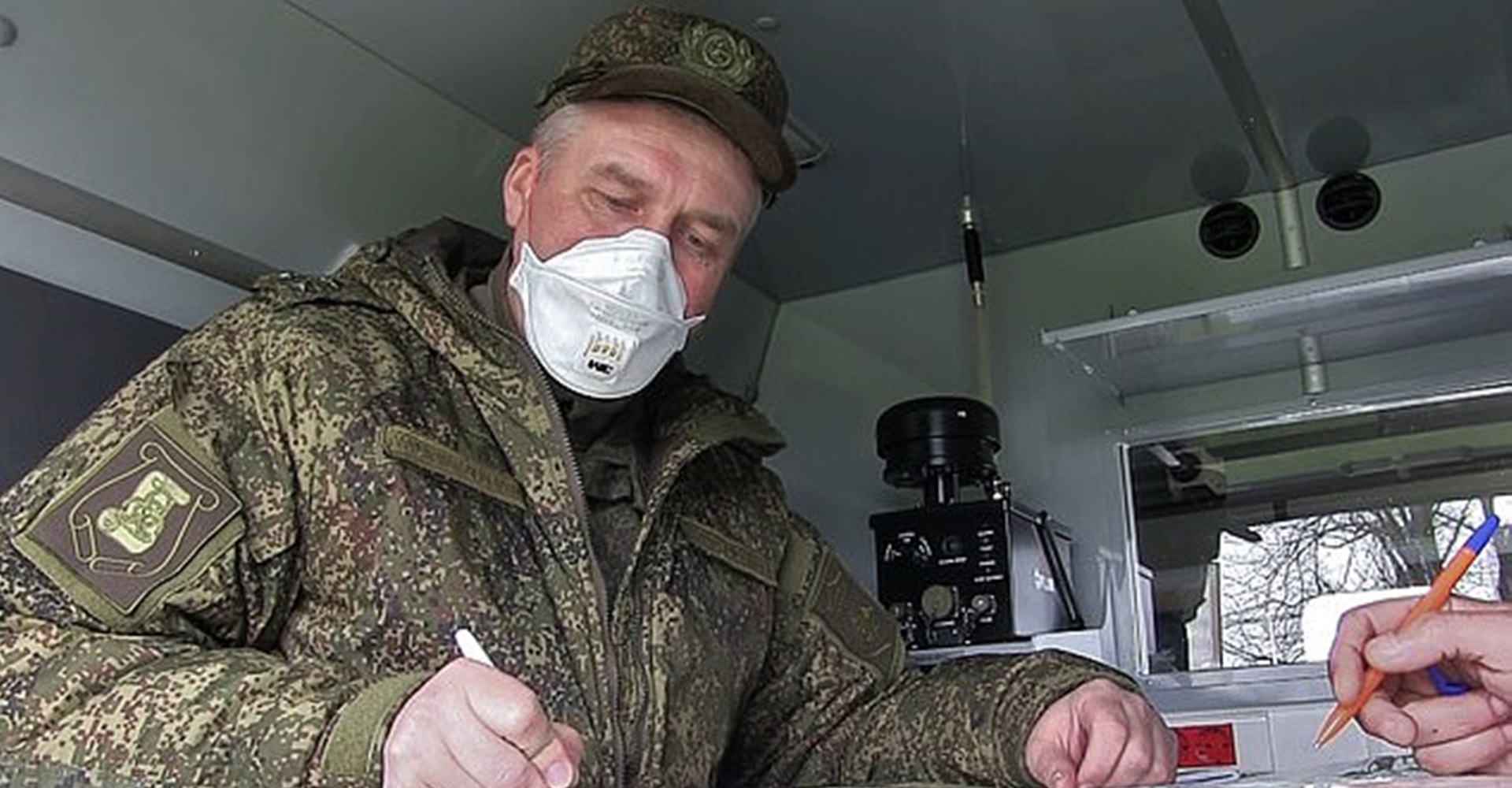Italy was engaged in a war of words with Russia today over allegations Moscow hid spies among doctors it sent to the country’s coronavirus epicentre.
President Vladimir Putin vowed to help the virus-stricken country last Saturday during a phone call with Prime Minister Giuseppe Conte.
Moscow then dispatched nine aircraft and more than 100 experts along with medical supplies to Milan, the epicentre of Europe’s coronavirus outbreak.
- Italy was engaged in a war of words with Russia over allegations Moscow hid ‘coronavirus spies’ among doctors in its aid package to Milan
- Turin newspaper reported official sources that 80 percent of aid was ‘useless’ and likely to contain officers from Russia’s GRU
- Moscow hit back at ‘Russophobic Cold War fake news’ in series of heated retorts, calling the paper’s assertions ‘the product of a perverse mind’
- Rome defended the newspaper, saying ‘freedom of expression and the right to criticise are fundamental values of our country’
But anonymous sources within the Italian Government told La Stampa newspaper that the Russian delivery contained equipment for bacteriological disinfection and a field laboratory for chemical-biological sterilisation – not ventilators and PPE.
‘Of those Russian supplies, 80 percent were completely useless or of little use to Italy. In other words, the delivery was more like a pretext,’ one source alleged.
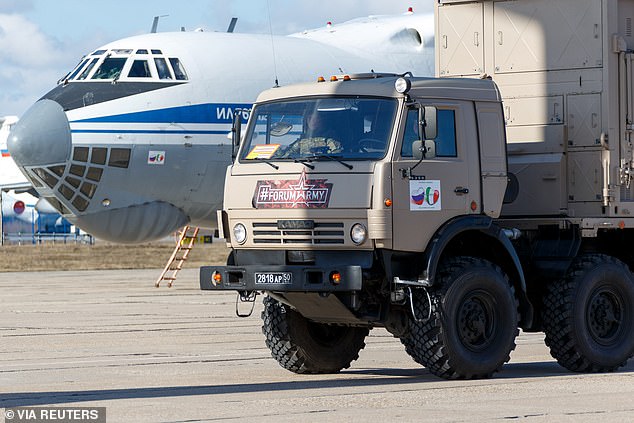
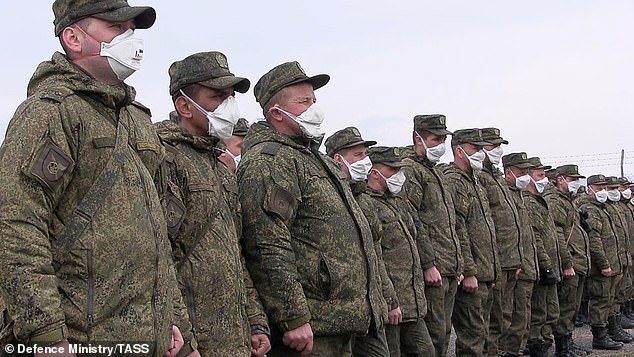
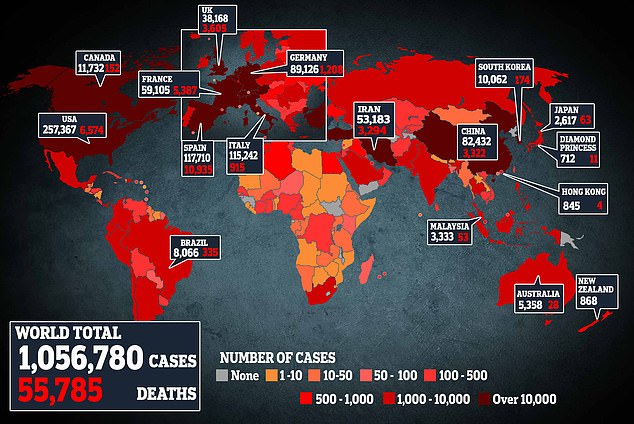
Officials claimed that Russia’s 104-strong contingent, run by the military, is likely to contain operatives from the GRU intelligence wing.
They also said that Mr Conte accepted the package, dubbed ‘From Russia With Love’, in order to secure a good personal relationship with Mr Putin.
Moscow dismissed La Stampa’s report, with Ambassador Sergei Razov telling state-run RIA Novosti news agency: ‘Such assertions are the product of a perverse mind. A selfless desire to help a friendly people in trouble is seen as insidious.’
The Russian Embassy in Rome tweeted a statement from a regime spokesperson condemning La Stampa’s so-called ‘Russophobic Cold War fake news’.
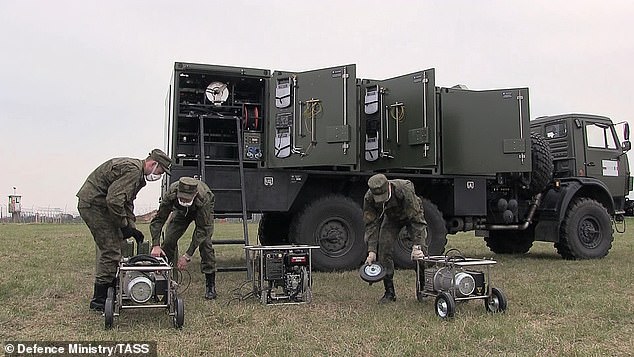

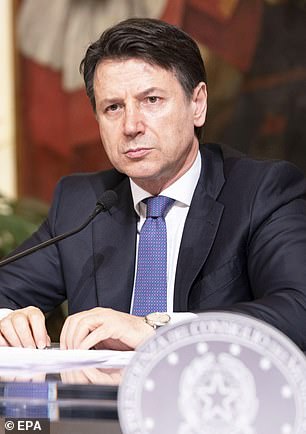
Vladimir Putin (left) vowed to help Italy last Saturday during a call with Giuseppe Conte (right)
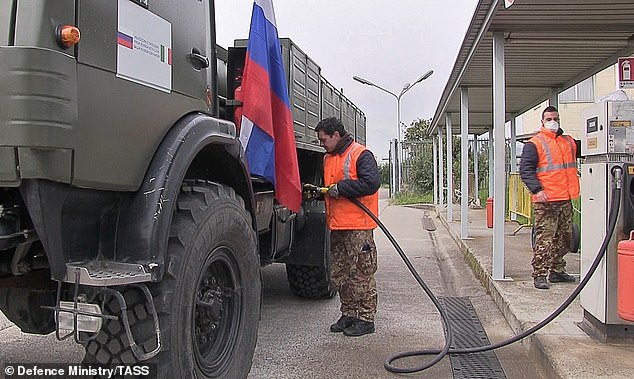
Its Defence Ministry accused the Italian paper of ‘hiding behind the ideals of free speech’ to spread stories reminiscent of ‘anti-Soviet propaganda’.
The Italian Government subsequently told Russia to back off, saying: ‘Freedom of expression and the right to criticise are fundamental values of our country.
‘While grateful for Russia’s support, one cannot but criticise the inappropriate tone of certain expressions used by the Russian Defence Ministry spokesman.’
It said Moscow had ‘the right to respond, but in a formal and correct manner’.
Russian spokesman Maria Zakharova accused La Stampa of ‘distinguishing itself by running a number of defamatory articles about Russian humanitarian aid’.
She insisted that Italians near Milan had ‘met the Russian column of trucks with applause, singing the Russian national anthem’.
La Stampa said it was ‘sorry and surprised’ by the range of Russian comments.
‘Our articles have raised questions – both from Italians and others – about the possible presence of intelligence officers in the Russian mission,’ it said.
Experts believe that Mr Putin is exploiting the coronavirus pandemic to improve Russia’s diplomatic and geopolitical reputation.
According to UK chemical weapons expert Hamish De Bretton-Gordon, the fact that the Russian mission is headed by a general is suspicious.
‘It’s like all their Christmases have come at once. It would be naïve to think that they are not collecting intelligence,’ he told The Daily Telegraph.
‘Without a doubt, there are GRU officers among them’.
The UK Government is accusing GRU officers of trying to poison former Russian spy Sergei Skripal and his daughter in Salisbury in 2018.
US intelligence agencies believe the GRU hacked the computer servers of President Donald Trump’s Democratic rivals during the 2016 election campaign.
Napomena o autorskim pravima: Dozvoljeno preuzimanje sadržaja isključivo uz navođenje linka prema stranici našeg portala sa koje je sadržaj preuzet. Stavovi izraženi u ovom tekstu autorovi su i ne odražavaju nužno uredničku politiku The Balkantimes Press.
Copyright Notice: It is allowed to download the content only by providing a link to the page of our portal from which the content was downloaded. The views expressed in this text are those of the authors and do not necessarily reflect the editorial policies of The Balkantimes Press.

